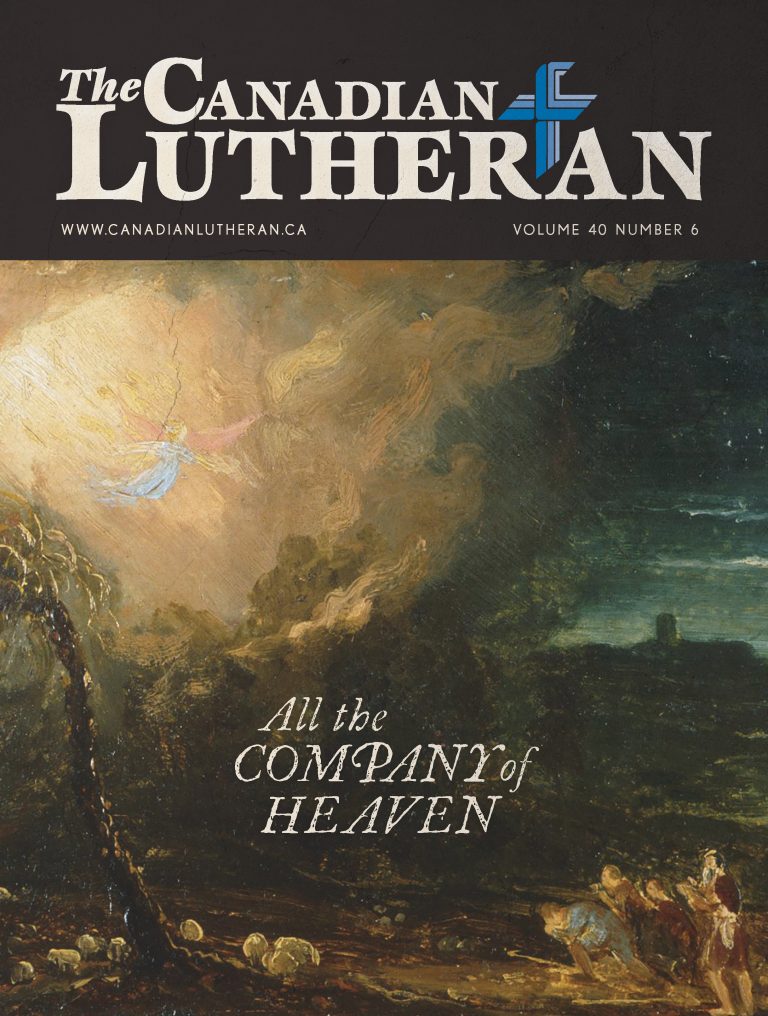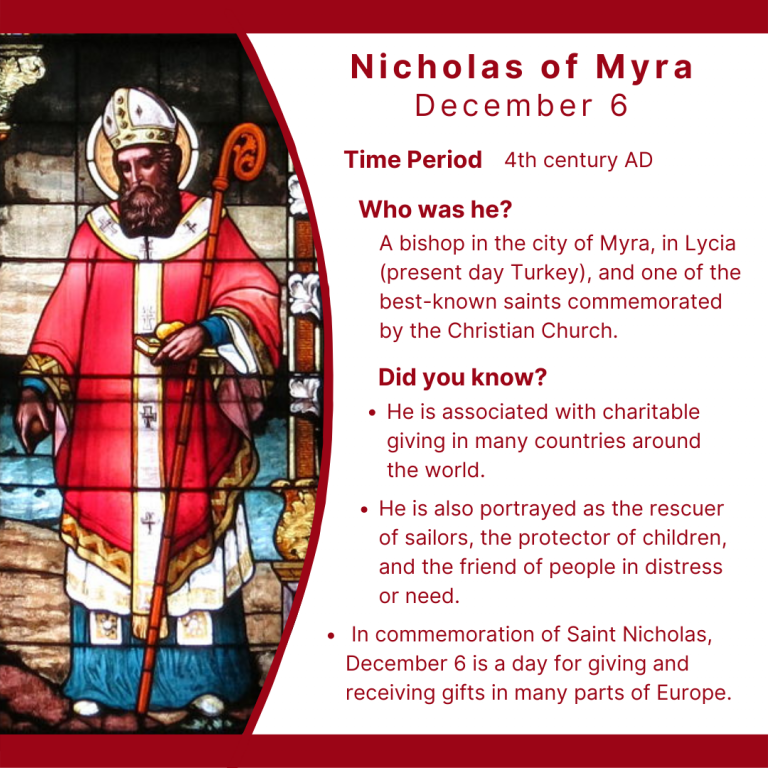Sharing the faith in Turkey: An interview with the head of the Istanbul Lutheran Church


Rev. Ville Typpö
Rev. Ville Typpö is head of the Istanbul Lutheran Church and pastor of Istanbul Lutheran Congregation in Turkey. He joined Mathew Block, editor of The Canadian Lutheran (CL), for an interview by Skype.
CL: Let’s start at the beginning: what is the history of the Istanbul Lutheran Church?
It goes back to the year 1709 when the first Lutheran pastor was sent to Constantinople from Sweden. Some decades after that, in 1741, a project was started to collect money for building a Lutheran church in the city. As a result of this project, a chapel was built in the garden of the Swedish embassy in Constantinople in 1748.
At the end of the 19th century, the Swedish state stopped paying the salary of the chapel’s pastor. After that time, the chapel served as a church building for the Greek Protestant community and some other Protestant groups. The Lutheran existence, I would say, kind of disappeared; only the chapel remained.
In modern Turkey, the Istanbul Lutheran Church was founded in 2003. Some Finnish Lutherans had been working in Turkey since the beginning of the 1970s, but during those years they couldn’t really think about having a Lutheran congregation living there.
In the beginning of this millennium, Finnish people living in Istanbul saw that it was now possible to start a Lutheran congregation, to come together and have public services. They started in the old Lutheran chapel with services in Finnish. People invited their friends and neighbours to attend. Gradually they started to translate the service and sermon into the Turkish language. In 2002, the first pastor was called to serve the congregation in Istanbul—Risto Soramies. He could preach in Turkish. He completed the enormous work of founding the church. Today, he is the bishop of the Mission Province in Finland.
CL: When did you become involved with the Istanbul Lutheran Church?
My family and I moved to Turkey in the beginning of 2007. It’s almost seven years now. We were called to serve there, and I was ordained as a pastor in Istanbul.
CL: How has the ministry in Istanbul changed since your arrival?

Worship at the Istanbul congregation. They meet in an old church building of the Armenian Catholic Church.
Given the history of the area, we usually don’t expect major growth. But every now and then, one or two people come and believe in Christ. It’s small streams of people, not big rivers. But every year we have been living in Istanbul, we have seen some new believers of Muslim background being baptized. Every year, new members join the congregation.
Today, the Istanbul Lutheran Church has more than just the church in Istanbul: we have four congregations in total. Two of them are in Turkey (one in Istanbul, and one in Izmir). The other two are in Bulgaria. Many people don’t know that there is a large Turkish-speaking minority who live in Bulgaria [8.5% of the total population, or nearly 600 thousand people, according to 2011 statistics]. In Bulgaria, we have congregations in Peshtera and Krusevo. The Krusevo congregation was just started; the first 13 members of the congregation were baptized just a month ago.
The Istanbul Lutheran Church currently has five pastors: four of Finnish background and one of Turkish background (in Bulgaria).
CL: You mentioned that the Istanbul Lutheran Church has a congregation in Izmir, which in ancient times was known as Smyrna. Early church tradition states that Polycarp was bishop there, perhaps installed by St. John himself. We also read that he was martyred there sometime around 155 AD as a very old man, refusing to deny Christ. “Eighty and six years have I served him, and He never did me any injury,” he is reported to have said. “How then can I blaspheme my King and my Saviour?” How does the witness of Polycarp inspire the work you do where he once lived?
He is, of course, a great witness for us. But it’s not just him. We are living on the grounds of the Apostles, and we very much feel it. We see the remnants of the old churches all around us. The seven churches of Revelation are all in modern Turkey. Local people know the places, and they can feel the history. It hits them.
At the same time, in Istanbul we live in the middle of large old stone buildings that used to be churches—the Hagia Sophia, for example. But most of these buildings no longer serve as churches. Christianity was once here, but most of it has disappeared. This reminds us that God never promised to save any institutions or buildings. But He promised to save the Church. That’s why He still takes care of our small congregations in Turkey. His promises are still valid and active in the Gospel for the people living in these places. And that promise helps us strive to build new churches.
CL: There are about 120,000 Christians of different denominations living in Turkey (less than 0.2% of the total population). About 99% of the population is Muslim. What are the difficulties doing ministry in a place with so few Christians? What are the opportunities?
When I think of this question as a Finn, as one who has lived in a “Christian” country—it’s really now a post-Christian country—I see a positive difference in Turkey. In Turkey, almost everyone is willing and ready to discuss religion. They are always willing to engage in discussions about Jesus. Most of them have a totally wrong understanding of Christianity; they don’t really have a knowledge of the Gospel. But that opens a window for you to preach.
In Turkey, almost everyone is willing and ready to discuss religion. They are always willing to engage in discussions about Jesus.
Turkey is a large country with many different regions and groups of people. Some of them are not willing to learn anything about Christianity, of course. But a large group of people are interested in learning and hearing what we are teaching. When you invite someone to visit church, they know what a church is; they’re surrounded by old churches. And when I tell someone I’m a pastor, he understands my occupation. He knows I’m someone he can talk to about Christianity and Jesus. In Finland, however, if I tell someone I’m a pastor, people don’t want to talk with me anymore! That’s quite a difference!
Conservative Christianity—confessional Lutheranism especially—teaches many things that Muslims understand and respect. Many people in Turkey are offended by the theology of liberal churches, but they can appreciate conservative Christian ethics and morality. On the other hand, our message about the incarnate Son of God—who suffered death at Calvary, who rose from the dead, and who is really present in Word and in Sacrament for the forgiveness of sins—is a radical offense both to Muslims and Atheists. But it’s an offense that works eternal salvation in those who hear the Gospel while struggling with the burden of their sins.
CL: What should members of Lutheran Church–Canada keep in their prayers regarding the Istanbul Lutheran Church?

Light shines out from the open door of the Istanbul congregation’s church, as a historic tram passes by in front. The church is located in a popular shopping area.
We are a tiny church—perhaps one of the smallest Lutheran church bodies in the whole world. The big challenge for us is training local pastors, to build up the people in such a way that local believers take up the responsibility of leading their congregations and the church body as well. This is a long journey. It’s not a matter of years but generations—unless our Lord returns first.
Meanwhile, we need the support of Lutheran brothers and sisters around the world to keep us in prayer. And if there is someone willing to serve with us, there is need for that. Every now and then we get calls from people around Turkey asking us to begin ministry in their hometowns and set up new congregations there. But for the time being, it’s not possible; we do not have the resources. We would like to, but the first priority is to take care of the existing congregations. We hope to strengthen local believers so that they can, one day, move to begin congregations in other places themselves.
We need the support of Lutheran brothers and sisters around the world to keep us in prayer. And if there is someone willing to serve with us, there is need for that.
In the meantime, I ask the people of Lutheran Church–Canada to keep the Istanbul Lutheran Church in their prayers. May the Lord raise up new “Polycarps” who so learn to know our King and Saviour that they can—by His grace—be faithful, longstanding witnesses to Christ and preach the Gospel for the salvation of the people of this region.
———————



